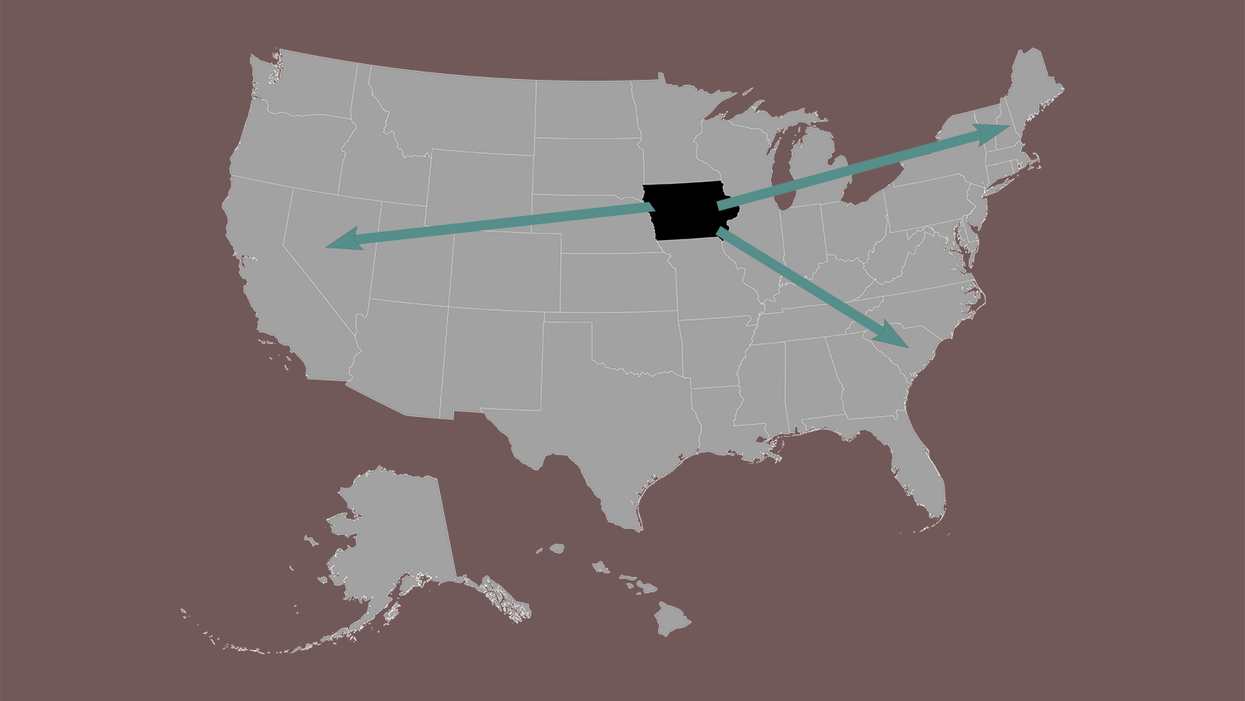The first question that will go through the minds of millions of Americans at 8 p.m. Eastern on Tuesday, when the polls close in the New Hampshire primary, will likely be a version of this:
We aren't going to have a repeat of the Iowa caucuses, are we?
This week's historic collapse of the system for reporting those results has thrust the mechanics for conducting the rest of the Democratic presidential contest under a spotlight of national anxiety and skepticism. And a bit of it is already justified, even before the next state votes.
The problem in Iowa centered on a hastily constructed and minimally mobile app that was supposed to be used to send the results from almost 1,700 caucus sites quickly and cleanly to a central counting location.
But a variety of problems doomed that concept from the start. Plenty of precinct captains never even tried to download the app, let alone get familiar with it before caucus night. Then flaws in the app's coding did not allow the three sets of results from each location to be transmitted correctly. And the old-fashioned Plan B — calling in the results to a telephone bank at party headquarters in Des Moines — caused a massive backup that apparently was aggravated by a wave of President Trump supporters who called the toll-free number in order to tie it up.
Everybody wants to know whether it could happen again — and, if so, where. That depends on a number of factors: whether the balloting is being conducted by the state government or the state Democratic Party, the latter of which usually has far less experience in running elections; whether the state is one of the few remaining with a caucus, which is more complicated than a primary; and what technologies are being deployed for conducting the vote, transmitting the results from the polling places and tabulating the statewide results.
Here is a quick look at what to expect from the next three Democratic contests, which combine with Iowa to be the de facto opening round that will probably reduce the roster of presidential hopefuls to a viable handful: the New Hampshire primary on Tuesday, the Nevada caucuses on Feb. 22 and the South Carolina primary on Feb. 29.
New Hampshire
Risk of Iowa redux: LOW
Positives:
- The election is being run by the state — not by the party, like the Iowa caucuses.
- There are only 301 precincts — as opposed to the 1,681 in Iowa.
- It's a straightforward primary, with Democrats allowed to choose one candidate, whereas Iowans could change allegiances between a first and second round.
- The voting is on paper ballots.
- Absentee ballots can only be obtained with an excuse, which often limits their number and so makes less work for election officials.
Negatives:
- There will be more votes to count. This week's Democratic turnout in Iowa totaled about 180,000 participants — but approximately 250,000 voted when Hilary Clinton squared off against Bernie Sanders in New Hampshire in 2016.
- Same-day voter registration could slow down the process if a throng of newbies show up.
- Experts say the state's voter registration rolls may be vulnerable to hacking.
Nevada
Risk of Iowa redux: MODERATE to HOLD ON TO YOUR HAT
Positive:
- The Democrats have scrapped plans for using the same app, built by the curiously named Shadow Inc., that caused so much Iowa angst.
Negatives:
- Like Iowa, this will be a caucus run by the state party — so neither a primary nor a government-run contest. Also, like Iowa's Troy Price, Nevada Democratic Party Chairman William McCurdy has never run a caucus before.
- There is no replacement yet for the dumped app. And the new process for reporting results has not been announced with two weeks to go.
- There will be 1,835 different caucuses — or 9 percent more than in Iowa.
- Early voting is allowed Feb. 15-18. That will require transmitting those results to organizers at each caucus site, and relying on them to include the early ballots in the vote count for each candidate.
- The party has a new set of rules this year, including a version of ranked-choice voting at the start of the caucuses and a complex method to determine which candidates have enough support to qualify for delegates.
South Carolina
Risk of Iowa redux: LOW
Positives:
- The state will run the election.
- It's a traditional primary: There will be 14 names on the ballot (including some who've dropped out) and voters do nothing but mark a single choice for president.
- Absentee voters must provide an excuse, which usually lowers the number of absentee ballots to be counted.
- There is no same-day registration that could slow the voting process.
Negatives:
- The state has a well-earned reputation for dirty politics.
- It's an open primary, meaning Republicans could swamp the polling places in an attempt to skew the results.




















Trump & Hegseth gave Mark Kelly a huge 2028 gift